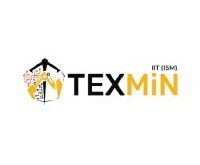Padma Patel, Anita Wagh, and Rukhsana Bi are part of an expanding rural ecosystem where success inevitably follows empowerment
The idea of a future-forward, inclusive, economically and socially developed India is incomplete without the participation of women in the workforce. With equal access to education, economic opportunities and safety, women can drive social change, transcend socio-cultural barriers and run businesses with confidence. Thanks to initiatives like Mudra Yojana and Stand-Up India, the Female Labour Force Participation Rate has increased from 23.3% in 2017-18 to 41.7% in 2023-24. However, the Economic Survey 2024-25 is a sobering call to reflection. It states that women still own just 22 per cent of India’s MSMEs, most of which are micro-enterprises.
To provide aspiring women entrepreneurs with opportunities to flourish, Transform Rural India (TRI), a development design organisation is working on transforming India’s bottom 1,00,000 villages into flourishing localities. With grounded and scalable solutions, it is creating entrepreneurial ecosystems that offer counselling, skill development, financial literacy workshops and entrepreneurial peer group meetings to encourage collaboration and resource sharing within communities.
The gains are quite palpable and many rural entrepreneurs have become shining examples of resilience and initiative.
An overview:
1. Padma Patel
Padma (35) hails from village Kari, Barwani district, Madhya Pradesh and is today the proud owner of Muskan Saree Shop & Silai Centre. To come this far was not easy as her family was engaged in agricultural labor, farming, and herding goats. Marriage did not bring financial ease either and so she opened a bangle shop to make ends meet. It was only after she joined the Entrepreneurship Development Program (EDP) through TRI’s Enterprise Facilitation Hub that her journey truly began. Through the Hub, she gained valuable market knowledge and business exposure. Additionally, with support from TRI’s Nari Adhikar Kendra, a programme which promotes women’s economic empowerment and access to entitlements, she strengthened her financial literacy and confidence to manage her enterprise.
With the help of her husband, she started buying sarees from Surat and the initial income of ₹3,000/month covered her children’s education. In 2020, Padma decided to turn the small bangle shop into a successful store. It was then that she joined TRI’s AEDP (Accelerated Entrepreneurship Development Program). Through the program she learnt to analyse and bridge market gaps and now also runs a sewing counter. Today, she not only enjoys customer trust but her income peaks to about ₹50,000 during festivals and the wedding seasons. She is well-versed with market surveys, effective sourcing and plans to establish a dedicated sewing centre on newly acquired land. She is also inspiring other women to acquire skills and use resources from Nari Adhikar Kendra to realise their dreams.
2. Anita Wagh
Anita (32), from the Kansul village in Pansemal, Barwani district, Madhya Pradesh, was unable to complete her education beyond Class 10. But that didn’t stop her – she used her tailoring skills to start Jai Dasha Mata Silai Center. It began after marriage, when she was encouraged to pursue tailoring as a profession by her husband and mother-in-law as the family survived on a meagre income of ₹12,000.
Obtaining a ₹10,000 loan through a self-help group and guidance from Pansemal Enterprise Facilitation Hub and the nearest Nari Adhikar Kendra, she started tailoring from home. It was here that she got connected to TRI’s AEDP and got herself trained to strategise and gain marketing skills.
She soon relocated her centre to Pansemal, serving village women from nearby areas. Noticing that women paid high prices for designer blouses, she focused on versatility, value for money, consistent quality and timely delivery. She is now earning around ₹20,000 and plans to expand the centre into a cloth shop. Financial independence has inculcated in her self-esteem and also given her the respect of her family and community. She attributes her success to skill-building support, the patronage of her community and the support of her family. The tailoring unit, she believes, is her most significant achievement and she hopes to run an even more successful cloth business in the near future.
3. Rukhsana Bi
Rukhsana (33) is from Julwaniya, Barwani and has successfully established her very own micro enterprise, the Ayesha Collection Cloth Shop. She grew up amid economic challenges and due to social constraints and lack of encouragement, she could study only up to 8th grade. She would have remained restricted only to household chores and domestic work but in 2023, her life changed for the better. Luckily her husband and in-laws were supportive and encouraged her to pursue her ambitions. Before she started her shop, she was totally dependent on her husband who earned only ₹7,000–₹8,000 every month. The Enterprise Facilitation Hub (EFH) established by TRI at Julwaniya guided her.
The self-help group meetings instilled confidence in her and made it possible for her to dream big and gain market knowledge. She identified a market gap when she saw villagers travelling to Sendhwa or Khargone to buy fabric. With EFH’s help, she developed a business plan and secured a loan from Gram Sangathan and now her shop stocks goods worth ~₹300,000, serving around 200 families from Julwaniya and nearby villages. She now earns a monthly income of ₹12,000–₹15,000. Rukhsana feels empowered today, having gained both financial independence and social recognition. She is educating her children, contributes equally to family decisions and hopes to soon move out from a rented space to become a full-fledged shop owner.
 Newspatrolling.com News cum Content Syndication Portal Online
Newspatrolling.com News cum Content Syndication Portal Online







